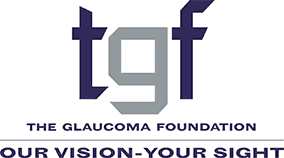~Doctor, I Have a Question. If I have heart disease or problems with my blood vessels, should I be worried about my risk for glaucoma?~
Question answered by:

Glaucoma is a common eye disease affecting millions of persons worldwide, and today it is the leading cause of irreversible blindness in African Americans. The risk for glaucoma increases with age, and other factors and medical conditions may further increase the odds for its onset and progression. Intraocular pressure is the only currently approved therapeutic pathway. However, in many patients, lowering eye pressure does not prevent the disease or stop its progression, and vascular health has been demonstrated for many years to be a contributory factor in many individuals. Glaucoma is a multi-factorial disease inclusive of intraocular pressure and vascular deficits such as poor blood supply to the optic nerve and low blood pressure.
The cells within your eye responsible for vision, the retinal ganglion cells, require constant blood flow and nourishment to maintain their health and provide vision. Lower biomarkers of blood flow and metabolism have been identified within the eyes of glaucoma patients, either alone or in combination with elevated eye pressure. Specifically, vascular deficiencies have been identified in the blood vessels supplying the eye and within retinal, choroidal, and optic nerve tissues. However, the extent to which vascular disease may elevate your risk for glaucoma is uncertain and highly individual in nature. The pressure within your eye in combination with your vascular health, unique anatomy, demographics, and other conditions such as diabetes will ultimately determine your overall risk for the onset and progression of glaucoma.
Importantly, being of African descent significantly elevates your risk for glaucoma. Persons of African descent experience approximately a threefold increase in glaucoma compared to those of European descent, having both earlier onset and faster disease progression. The mechanisms behind these significant disparities are not well understood or adequately addressed in current practice, but may be in part due to the significantly higher levels of systemic vascular disease observed within African American communities. Persons of African descent have significantly higher levels of diabetes, high blood pressure, and heart disease as well as glaucoma. In my laboratories, we previously identified lower biomarkers of blood flow and metabolism in the retina and blood vessels supplying the eye in glaucoma patients of African descent, and further identified how these deficits were associated with their disease progression. Our recent studies point to an urgent need for larger prospective trials with African descent endpoints as the primary outcomes to confirm these findings.
In summary, cardiovascular disease and blood vessel health have indeed been linked to glaucoma, especially within persons of African descent. However, the extent to which vascular health may influence your risk for glaucoma or its progression is currently difficult to determine. The vascular imaging equipment required to visualize these tissues are expensive, require specific training, and produce complex data with high individual variability. To overcome these limitations my teams are currently working on using mathematical modeling and artificial intelligence applications to enhance the ability to use these vascular data in determining glaucoma risk and designing the best approaches for improved patient outcomes.
Alon Harris, MS, PhD, FARVO, is a Professor of Ophthalmology, Vice Chair of International Research and Academic Affairs, Director of Ophthalmic Vascular Diagnostic & Research Program at Mount Sinai Hospital, Icahn School of Medicine at Mount Sinai, New York
